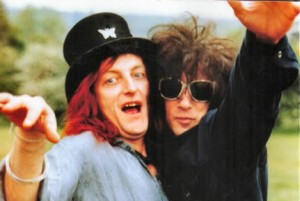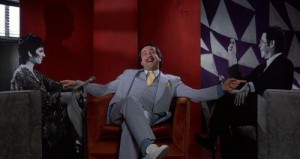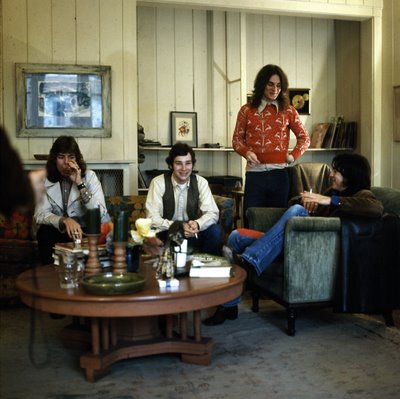
Martin and John (not pictured: Abraham).
Apologies
Dear Fellow Rock’n’Rollers, I have been remiss. Many months ago now I promised to write 3 articles on 3 “very British Johns” and I did not come through on parts 2 and 3, but I do have my excuses.
- Band trouble, we can all understand this affliction I hope
- I have been trying to organise my life to make studying for my degree at least possible!
- Drunk. Yep! Good’ol fashioned drunk
But no more excuses, on with Part 2! Better late than never.
Three Very British Johns, Part 2: John Cooper Clarke, The Bard of Salford
A lot of what people think about John Cooper Clarke is projected on to him. He has always been referred to as a “Punk Poet,” which doesn’t do him justice despite being true. He did arrive on the scene in the ’70s along with punk and he does dress very punk and the machine-gun delivery of his prose in the early days went down well with the punk audiences and he did form part of the punk vanguard, most definitely, but there is a lot more to his work than that. For me JCC is one of the greatest poets Britain has produced; laced with wit and social comment his poems range from the plight of the young to the many plus sides of a hire car.
He was born in Lancashire in 1949 and was inspired by a teacher who introduced him to poetry; his first job was a laboratory technician (he even did a sugar puffs advert in the ’80s). He began performing in folk clubs around Manchester and went on to perform on the same bill with all of the great punk acts of the ’70s. He recorded a few albums, even had a top 40 chart hit “Gimmix (Play Loud),” but after a varying level of success he disappeared off the scene for nearly 20 years. Some put this down to a chronic heroin addiction, which thankfully he kicked, but JCC puts it down to idleness and lack of ambition: “…lots of people take heroin and still keep a career,” as he explained in a TV interview in 2009.
The first time I ever heard JCC was when I caught a an episode of the Old Grey Whistle Test from 1978, with him performing a poem set to music called “I Don’t Wanna Be Nice.” I was convinced that this guy was everything that people had said about him: venomous, bile spitting drug-addled punk poet, but when you look at the body of his work and his demeanor in interviews he is actually a very “nice man” who is so much more than the moniker of Punk-Poet suggests and who only swears when it seems appropriate. Looks can be deceiving.



